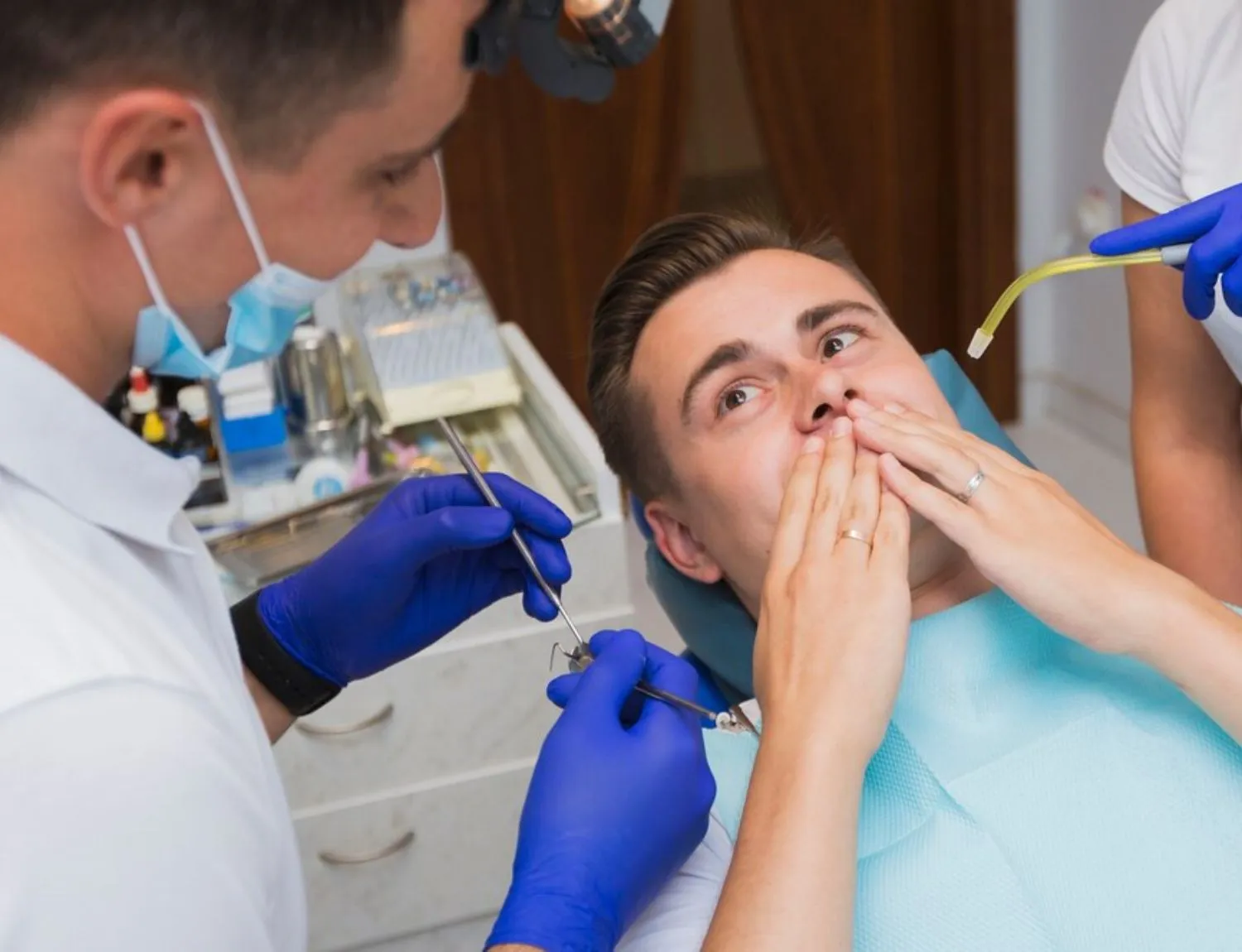Introduction
We all know that emergencies can happen anytime, including with our teeth. Whether it’s a sudden toothache or an unexpected injury, dental emergencies can be painful and scary. In this guide, we’ll talk about what to do in these situations so you can handle them calmly and confidently. Whether you’re dealing with a need for emergency tooth extractions or an accident that affects your teeth, knowing how to manage these issues is crucial for keeping your mouth healthy and happy.

Understanding Dental Emergencies
Dental emergencies may include severe toothaches, traumatic injuries to the mouth, knocked-out teeth, broken crowns or fillings, and abscesses, among others. Recognizing the signs of a dental emergency is the first step in effectively managing the situation and seeking prompt care when needed.
Emergency Dental Care:
When faced with a dental emergency, it’s essential to act swiftly and decisively to alleviate pain and prevent further damage. One of the most critical aspects of emergency dental care is knowing when to seek professional help. A dentist should be contacted immediately if you experience severe tooth pain, swelling, bleeding, or trauma to the mouth. Many dental practices offer emergency services to address urgent oral health issues outside of regular business hours. Additionally, prioritizing mental health is vital, especially during stressful situations like dental emergencies. Taking care of your mental well-being can help you manage pain and anxiety effectively while seeking necessary dental treatment.
Emergency Tooth Extraction
Emergency tooth extraction is a procedure performed to remove a tooth that is beyond repair or poses a threat to the surrounding teeth and tissues. While the thought of tooth extraction may be daunting, rest assured that modern dental techniques and anesthesia ensure a relatively painless experience. Your dentist will discuss the procedure with you and provide post-extraction care instructions to promote healing and prevent complications.
Preventing Dental Emergencies
While dental emergencies can occur unexpectedly, there are steps you can take to minimize your risk and protect oral health. Practicing good oral hygiene, including brushing twice daily, flossing regularly, and scheduling routine dental check-ups, can help prevent dental problems from developing. Avoid harmful habits, such as chewing on hard objects, and wear protective gear during sports activities.
Conclusion
Dental emergencies can be frightening and overwhelming, but with the right knowledge and preparation, you can navigate them with confidence. Taking preventive measures and understanding dental emergencies can minimize the impact of unexpected oral health problems. If you need emergency dental care, your emergency dentist is ready to provide prompt and compassionate treatment.